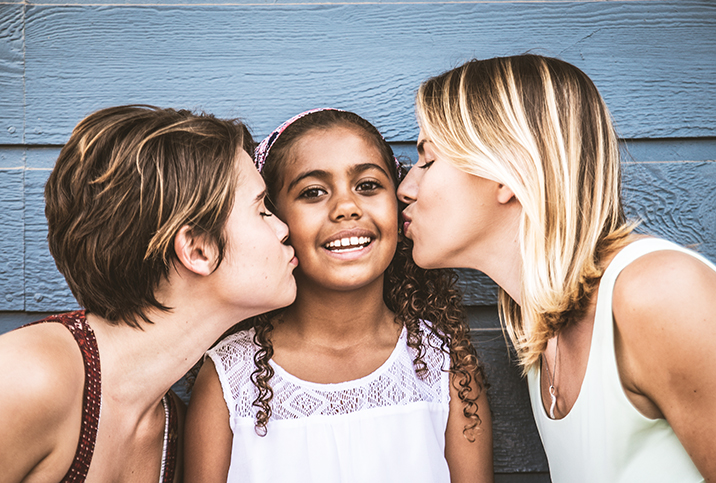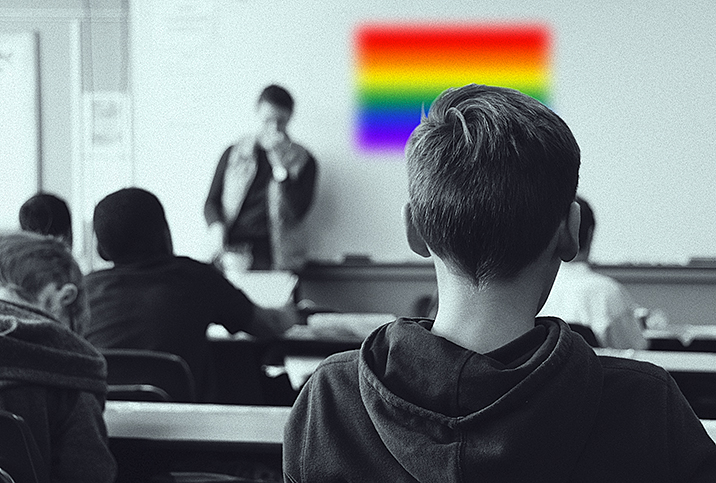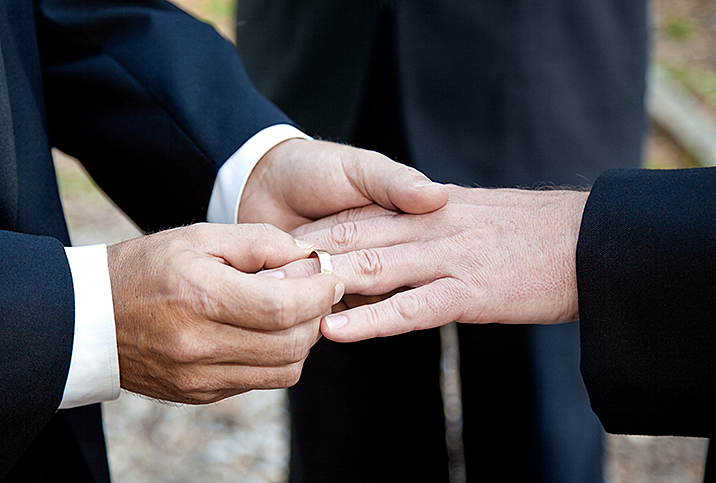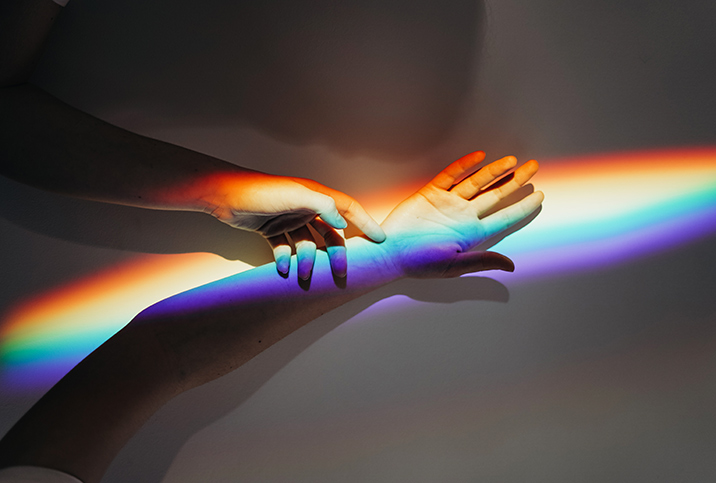Parenting in the LGBTQIA+ Community: Challenges and Benefits

More than 11 million people in the United States identify as lesbian, gay, bisexual, transgender, queer, intersex, asexual or other (LGBTQIA+) and between 2 million and 3.7 million kids in the U.S. have a queer parent (as of 2017). Some children have same-sex parents, are raised by single parents or have one bisexual and one straight parent.
About half of all same-sex couples in the United States are legally married; these couples are more likely to raise children than unmarried same-sex couples. They're also seven times more likely to adopt or foster children, but same-sex couples can have children in a number of ways. Some couples choose to use a surrogate or sperm donor to have children, and some may have children from a prior relationship.
Parental hardships
Parenthood can compound the challenges presented by being queer. LGBTQIA+ families may face judgment or discrimination from other parents, school systems, childcare centers and other family-oriented spaces. Children may hear nasty comments about their parents or wonder why their family is different from others. Kids with LGBTQIA+ parents are more likely to grow up in poverty—24 percent of children with same-sex parents compared to 14 percent of those with different-sex parents.
Some states don't have legal protections in place, making queer parents vulnerable to discrimination. For example, the law may make it impossible to establish a legal relationship to children, meaning more LGBTQIA+ families—36 percent compared to 10 percent for married heterosexual couples—have "unrelated" children. Not being a legal parent creates a litany of problems, such as higher taxes, losing access to safety-net services and even being denied health insurance.
If an LGBTQIA+ family has lower income, parents are less likely to acquire legal protection, send their children to welcoming schools or manage their tax burden. Further, they may not qualify for government programs that help low-income families. Definitions of families continue to be narrow in U.S. policy. For example, the Defense of Marriage Act (DOMA), while ruled unconstitutional federally, still enables states to deny recognition to same-sex couples, even if they're legally married.
The benefits for children
Growing up with a parent or parents in the LGBTQIA+ community comes with many special benefits, such as early exposure to less traditional family structures and a learned compassion for sexual- and gender-identity issues. Most same-sex parents are motivated to have children and actively plan for it, often committing large amounts of time and money.
A 2008 study found LGBTQIA+ parents are more involved in their kids' educational lives. Further, mental health professionals assert that children raised in queer families are just as well adjusted as those in heterosexual families, regardless of parental gender identity. A plethora of studies have shown children with same-sex parents have a better understanding and acceptance of diversity, plus greater confidence.
Coping and support
Support groups provide an outlet to discuss challenges with other parents. Knowing you're not alone and hearing similar stories provide a sense of community. Additionally, there are many helpful national organizations, such as Gay Parent Magazine, National Center for Lesbian Rights, Family Equality Council, Custody Action for Lesbian Mothers (CALM Inc.), and Children of Lesbians and Gays Everywhere (COLAGE), as well as state and regional support groups.
Finding "Pride" as an LGBTQIA+ parent
Gender and sexual identity have nothing to do with whether someone is a good parent. Loving your child, supporting them, helping them grow into a compassionate person—that's being a good parent.
Your child's family structure may make life difficult for them sometimes. Being "different" in society isn't always easy. But different can also mean your child will benefit from more diverse experiences. Most importantly, your child will love you for being a loving parent, and at the end of the day, that's all that matters.


















